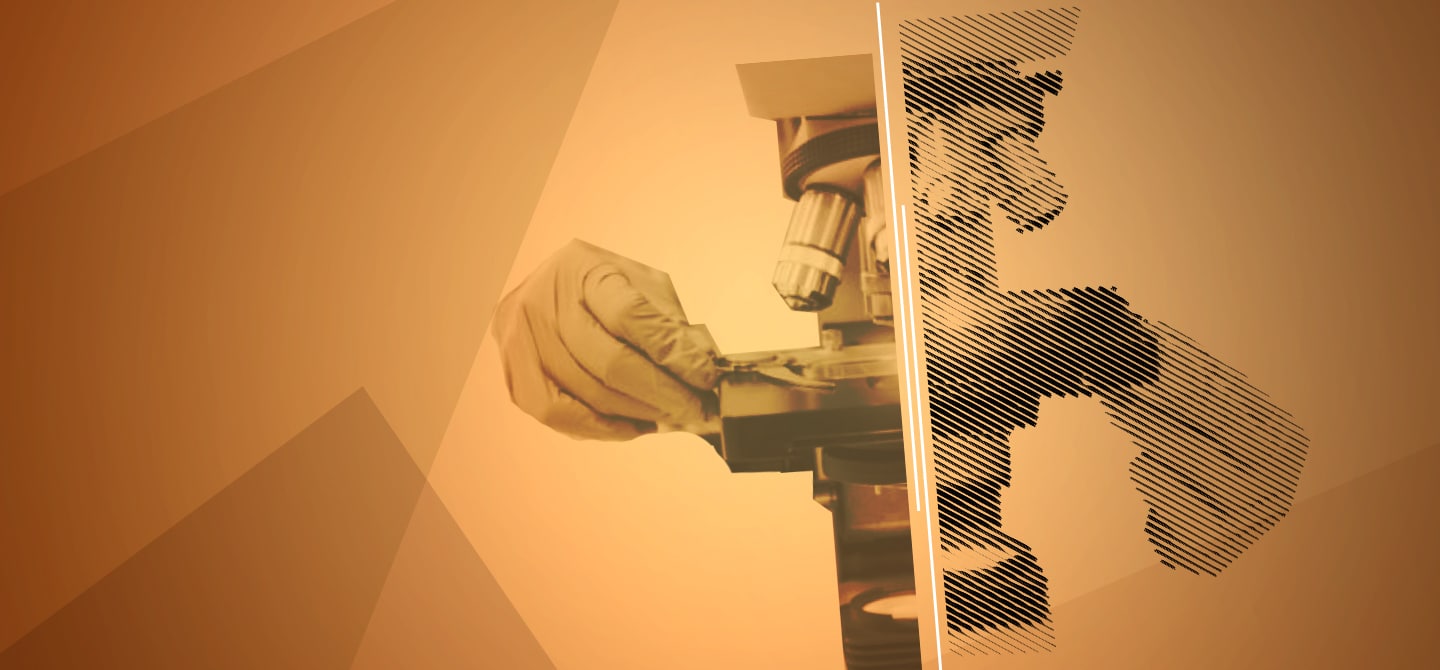This article is the first episode of a two-part survey conducted with Ifop in August 2022. Click here to download the results.
Only 21% have a “satisfactory” level of scientific knowledge
When asked about their level of scientific knowledge1, only 21% of French people say they have a satisfactory level of scientific knowledge – a level that is down from 2018 (27%, or ‑6 points) – with 3% who say they are very satisfied. At the same time, 42% consider their level of scientific knowledge to be average, while 37% consider that they have shortcomings in this area, including 17% with major shortcomings. This drop in the self-assessment of scientific level could be related to the technical level of of the scientific debate over the last two years around Covid.
To add precision: more men and those under 35 rate their scientific literacy as satisfactory (26% and 33% respectively, compared with 18% of women and 17% of those aged 35 and over). The more advantageous position of younger people is explained in particular by their level of knowledge and education, which is undoubtedly higher than that of their elders. But also, by the fact that they have been in education more recently. The gender gap, on the other hand, can be explained in several ways: firstly, men tend to overestimate their knowledge at all levels, while women tend to devalue it. In addition, educational backgrounds of women make them less likely to take up scientific subjects and data suggests they are not encouraged to pursue scientific studies to the same extent as men.
Nearly 92% have a “positive image” of science
This level of scientific knowledge, which appears relatively low, does not seem to influence the overall image that the French have of science in general. Thus 92% of them declare that they have a positive image of science, including 22% who have a very positive image.
In detail, however, the level of scientific knowledge has an influence on the degree to which people have a positive perception of the discipline. Thus, 55% of those who consider themselves to have a satisfactory level of scientific knowledge have a very good image of science, whereas only 9% of those who consider themselves to have a deficient level of scientific knowledge have a very good image of science (a difference of 46 points).
Although the positive image of science is unanimously shared by the French as a whole, there are nevertheless divisions in terms of the very positive image: more men and those in the highest socio-professional categories declare that they have a very positive image of science (31% and 38% respectively, compared with only 15% of women and 14% of those in the lowest socio-professional categories). Furthermore, supporters of opposition parties, such as France Insoumise, are less likely to have a very positive image of science (18%), whereas supporters of government parties are more likely to have a very positive image: 32% of supporters of La République en Marche, 39% of Les Républicains supporters and 28% of Socialist Party and EELV supporters.
72% believe that science makes mankind better
More specifically, on the subject of science, more than 9 out of 10 French people agree with the statements that science is a source of progress for mankind (93%, including 39% who strongly agree), that it has a significant economic impact through the innovations it enables (91%, including 27% who strongly agree), or that science must remain a reference point because it enables us to distinguish between truth and falsehood on a large number of subjects (90%, including 32% who strongly agree).
87% of French people also consider that science is a collection of attractive disciplines, although 70% of them consider them to be complex and not very accessible. Also, 72% believe that the development of scientific knowledge makes man better.
8 out of 10 French people have confidence in scientists
Beyond the image of science in general, scientists also enjoy a positive image among the general public, albeit in a somewhat more nuanced way. 93% agree that scientists are people motivated by a desire for knowledge, curiosity and imagination (including 35% who strongly agree). This item was the only one to meet with the approval of more than 9 out of 10 French people. Next comes the idea that scientists are motivated by a desire to help change the world, for 85%, of which 19% strongly agree. 8 out of 10 French people also consider scientists to be trustworthy, but only 12% strongly agree – one of the lowest scores obtained on this response item.
The 25–34 age group is also under-represented among those who trust scientists (69%, 11 points below the average) – a phenomenon that seems to be growing among this generation, the first to have grown up with social networks, marked by a growing distrust of governing bodies, and more prey to the difficulties of working life (compared to the 18–24 age group).
Other statements testify to the disinterested nature of researchers: the fact that they work in the general interest, the fact that they are dedicated and work for the good of humanity, obtain approval scores of 79% and 78% respectively. In addition, a minority of French people believe that researchers are motivated by the desire to be known by the general public (46%).
However, several aspects contradict this image: 71% of French people recognise that they are motivated by competitiveness, 70% consider that they give priority to science, sometimes to the detriment of humanity, and a majority expresses doubts about their independence (57% do not consider them to be independent).
Here again, the Covid-19 crisis may have played a role in the negative perception of scientists. A large number of scientists were interviewed on television and 24-hour news channels about the crisis, and this media coverage of scientists over more than a year may have had an impact on the relatively low proportion of French people who consider scientists to be independent: from the moment scientists entered the field of current information, in close collaboration with the authorities in the management of the health crisis, their independence may have been called into question by a certain part of the population, which was more suspicious of the authorities.








